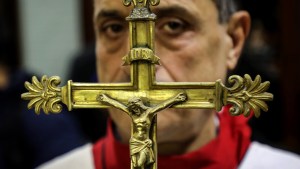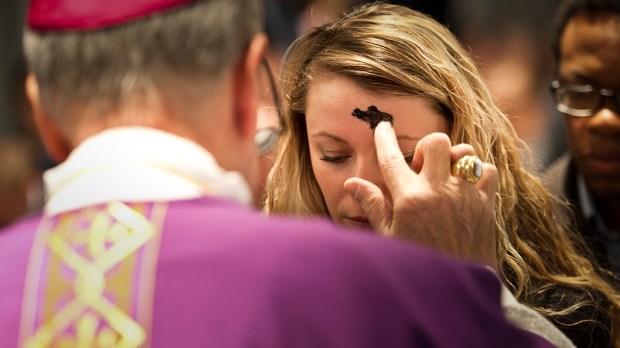Recently, in some regions of China, such as the eastern province of Zhejiang, the government has banned Catholic priests from assisting at graveside services. Allegedly inaugurated to curb undesirable funerary customs, the laws confine the practice of religion to churches. Religious activities are strictly confined to religious places. The new Chinese policy inflicts pain upon Christian families even after death, prohibiting our traditional mourning rites.
In Nigeria, four seminarians were kidnapped by a terrorist group. One of the young men, Michael Nnadi, was killed. Nnadi’s three confreres were released in late January. Kidnappings and violence are perpetuated against the Church in Nigeria, not only by terrorist groups like Boko Haram, but also by bandits hoping to extort ransoms for hostages.
In May 2019, while Mass was being offered, gunmen entered a church in Dablo (in northern Burkina Faso) and murdered the priest celebrating the Mass and five Christians assisting at the liturgy. They are numbered among the—at least—40 Christians martyred in Burkina Faso in 2019.
Lent offers the perfect opportunity to join in solidarity with the suffering Church throughout the world. By undertaking the typical types of asceticism that mark the 40 days, we can transform our normal customs and imbue them with new meaning. Not only are we depriving ourselves of desired goods, but by uniting our efforts with persecuted Christian communities throughout the world, our Lenten disciplines can carry new purpose and be redefined, even remade.
Pray
This Lent, pray for the suffering Church. According to the 2019 Open Doors World Watch List, 260 million Christians experience high levels of persecution in their home countries. This is not mere unfavorability; this is defined by undergoing outright aggression and intolerance.
Our sisters and brothers face these realities daily. During Lent, especially, we can pray daily. Perhaps you even attend daily Mass during Lent; consider making persecuted Christians your special intention. Offering any merits from our prayers for their consolation, binding ourselves to the cross, recognizing their glorious imitation of the suffering Christ, we can participate in their trials.
Fast
As Christian refugees flee their war-torn homes, they often go without food or drink. For them, in difficult times of violence, we’re talking about not having what is necessary to survive.
Our Lenten fasts can remind us of what our brothers and sisters are facing. Fasting becomes much more powerful when we consider those who have naught. “Bear one another’s burdens,” St. Paul exhorts the Galatians. A touch of hunger will bring to mind those who go without.
Give alms
Lives are destroyed by anti-Christian aggressors. Refugees depend on the kindness of other Christian communities to care for them. At the end of his Letter to the Philippians, Paul thanks them for their financial support of his ministry. He writes, “I know how to be abased, and I know how to abound; in any and all circumstances I have learned the secret of facing plenty and hunger, abundance and want. I can do all things in him who strengthens me. Yet it was kind of you to share my trouble.” He goes on to remark how the gifts are a fragrant offering, a true sacrifice offered to God.
Matthew’s Gospel reminds us, “Truly, I say to you, as you did it to one of the least of these my brethren, you did it to me.”
To show our love for the suffering Church is to declare our love for the Lord. Be generous this Lent. Dare to go without, that another Christian might have.

Read more:
8 Concrete ways parishes can support persecuted Christians

